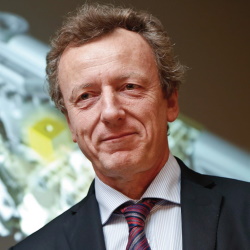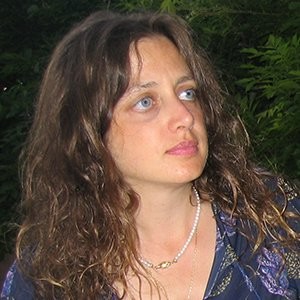Programme Boards
Coordinator
Roberto Battiston – University of Trento
Roberto Battiston is an Italian physicist, and full professor of Experimental Physics at the Department of Physics, University of Trento. He was president of the Italian Space Agency (ASI) from 2014 to 2018. He specialises in the field of fundamental and elementary particle physics and is a leading expert on cosmic rays.
He coordinated together with Nobel laureate Samuel C. C. Ting the construction of the Alpha Magnetic Spectrometer, operating on the International Space Station since 2011 and dedicated to the search for antimatter and dark matter.
He conducts research in geophysical remote sensing from space with the CSES satellite.
He has published more than 540 scientific articles in leading international journals. A columnist for La Stampa, Repubblica and L'Adige, he carries out an intense activity as an essayist and populariser. He has written The Alphabet of Nature (2022), The Mathematics of the Virus (2020), The First Dawn of the Cosmos (2019), Making Space (2019), Dialogue between an Artist and a Scientist (2012).
Vice-coordinator
Myrka Zago – University of Rome Tor Vergata 
Myrka Zago is a bioengineer and a full professor of Physiology at the Department of Civil Engineering and Computer Science Engineering of the University of Rome Tor Vergata. She is the Director of the Center for Space Biomedicine at the same University. She studies and teaches space physiology.
She discovered along with her colleagues the brain mechanisms involved in the representation of the effects of gravity on the body. She performed experiments on more than 20 astronauts flying on board the Space Shuttle or the International Space Station.
Her research has been published in the most important international journals, including Science, Nature Neuroscience and npj Microgravity (Nature portfolio).
She applies the results of her research to the development of new neurorehabilitation protocols for patients at the IRCCS Santa Lucia Foundation in Rome.
PhD programme committee
| Surname and name | Scientific area (SSD) | Institution |
|---|---|---|
| ALOISIO Roberto | FIS/02 | Gran Sasso Science Institute (GSSI) |
| BACCIGALUPI Carlo | FIS/05 | International School for Advanced Studies (SISSA) |
| BALDINI Luca | FIS/01 | University of Pisa |
| BATTISTON Roberto | FIS/01 | University of Trento |
| BERRILLI Francesco | FIS/06 | University of Rome Tor Vergata |
| BERSANELLI Marco Rinaldo Fedele | FIS/05 | University of Milan |
| BLEFARI MELAZZI Nicola | ING-INF/03 | University of Rome Tor Vergata |
| BORTOLUZZI Daniele | ING-IND/13 | University of Trento |
| BRUZZONE Lorenzo | ING-INF/03 | University of Trento |
| BUONGIORNO Maria Fabrizia | GEO/10 | National Institute for Geophysics and Vulcanology (INGV) |
| BURIGANA David | SPS/06 | University of Padua |
| BUSACCA Alessandro | ING-INF/01 | University of Palermo |
| CAO Giacomo | ING-IND/24 | University of Cagliari |
| CAPOLONGO Domenico | GEO/04 | University of Bari “Aldo Moro” |
| CAPORALI Stefano | ING-IND/22 | University of Florence |
| CARBONE Vincenzo | FIS/06 | University of Calabria |
| CARRERA Erasmo | ING-IND/04 | Polytechnic University of Turin |
| COLPI Monica | FIS/05 | University of Milano-Bicocca |
| COLUCCIA Angelo | ING-INF/03 | University of Salento |
| DE MITRI Ivan | FIS/01 | Gran Sasso Science Institute (GSSI) |
| DE PALMA Francesco | FIS/01 | University of Salento |
| DI PASQUALE Fabrizio Cesare Filippo | ING-INF/03 | Sant'Anna School of Advanced studies Pisa |
| ESPOSITO Francesca | BIO/19 | National Institute for Astrophysics (INAF) |
| ESPOSITO Paolo | FIS/05 | University School for Advanced Studies – Pavia |
| FANUCCI Luca | ING-INF/01 | University of Pisa |
| FIORE Fabrizio | FIS/05 | National Institute for Astrophysics (INAF) |
| FORNENGO Nicolao | FIS/02 | University of Turin |
| GAGLIARDI Maria | IUS/01 | Sant'Anna School of Advanced Studies - Pisa |
| GARGANO Fabio | FIS/04 | National Institute for Nuclear Physics (INFN) |
| GIORDANO Francesco | FIS/01 | University of Bari "Aldo Moro" |
| GREGORIO Anna | FIS/05 | University of Trieste |
| GRONCHI Giovanni Federico | MAT/07 | University of Pisa |
| IUPPA Roberto | FIS/01 | University of Trento |
| KRACHMALNICOFF Nicoletta | FIS/05 | International School for Advanced Studies (SISSA) |
| LORENZINI Enrico | ING-IND/12 | University of Padua |
| MACCARRONE Mauro | BIO/10 | University of L’Aquila |
| MALAGÙ Cesare | FIS/01 | University of Ferrara |
| MANTOVANI Fabio | FIS/06 | University of Ferrara |
| MARCONI Alessandro | FIS/05 | University of Florence |
| MAROTTA Anna Maria | GEO/10 | University of Milan |
| MARSELLA Giovanni | FIS/01 | University of Palermo |
| MARTORELLA Marco | ING-INF/03 | University of Birmingham |
| MAZZARELLA Giuseppe | ING-INF/02 | University of Cagliari |
| MITRI Giuseppe | FIS/05 | University of Chieti-Pescara |
| NATOLI Paolo | FIS/05 | University of Ferrara |
| OTON NIETO Claudiojose | FIS/01 | Sant'Anna School of Advanced Studies - Pisa |
| PAGANO Davide | FIS/01 | University of Brescia |
| PALLAVICINI Marco | FIS/01 | University of Genoa |
| PATERNOSTER Giovanni | FIS/01 | Fondazione Bruno Kessler (FBK) |
| PERROTTA Francesca | FIS/05 | International School for Advanced Studies (SISSA) |
| PIERSANTI Mirko | FIS/06 | University of L'Aquila |
| PIGHIN Stefania | M-PSI/01 | University of Trento |
| PIOTTO Giampaolo | FIS/05 | University of Padua |
| PRATESI Giovanni | GEO/06 | University of Florence |
| PUGLISI Giuseppe | GEO/10 | National Institute for Geophysics and Vulcanology (INGV) |
| PUGLISI Giuseppe | FIS/05 | University of Catania |
| PUGNO Nicola | ICAR/08 | University of Trento |
| RICCI Raffaella Giovanna Nella | M-PSI/02 | University of Turin |
| RICCIARINI Sergio Bruno | FIS/01 | “Nello Carrara” Institute of Applied Physics (CNR-IFAC) |
| RIGON Riccardo | ICAR/02 | University of Trento |
| RIZZO Angela Maria | BIO/10 | University of Milan |
| SACCOMANDI Giuseppe | MAT/07 | University of Perugia |
| SANTARCANGELO Enrica Laura | BIO/09 | University of Pisa |
| SERIANI Stefano | ING-IND/13 | University of Trieste |
| SPARVOLI Roberta | FIS/04 | University of Rome Tor Vergata |
| TERRACINI Susanna | MAT/05 | University of Turin |
| TIENGO Andrea | FIS/05 | University School for Advanced Studies – Pavia |
| TONETTA Stefano | ING-INF/05 | Bruno Kessler Foundation (FBK) |
| VALENTINI Francesco | FIS/03 | University of Calabria |
| ZAGO Mirka | BIO/09 | University of Rome Tor Vergata |
Student representative
PhD student representatives are elected in a number of two from among those enrolled in the PhD Course.
The duration of their office is two years; in the case of forfeiture or resignation during the two years, they shall be replaced by the first non-elected; if there is no candidate in the list of elected members, a new vote shall be held; pending the holding of the vote, the Board of Lecturers shall remain validly constituted.
The representatives of the doctoral students shall attend the meetings of the Board, limited to matters concerning the general progress of the doctorate and the training courses.
| NOSSEIR AHMED EMADELDIN SAYED | ahmed.nosseir [at] unitn.it | Scuola Superiore Sant’Anna - Pisa |
| SIRLETTI SALVATORE SAMUELE | salvatore.sirletti [at] unitn.it | University of Ferrara - Ferrara |
Executive committee
- Battiston Roberto – University of Trento
- Baccigalupi Carlo – International School for Advanced Studies (Sissa)
- Burigana David – University of Padua
- Carbone Vincenzo – University of Calabria
- Gargano Fabio – National Institute for Nuclear Physics (INFN)
- Mazzarella Giuseppe – University of Cagliari
- Pratesi Giovanni – University of Florence
- Zago Myrka – University of Roma Tor Vergata


 Printable version
Printable version